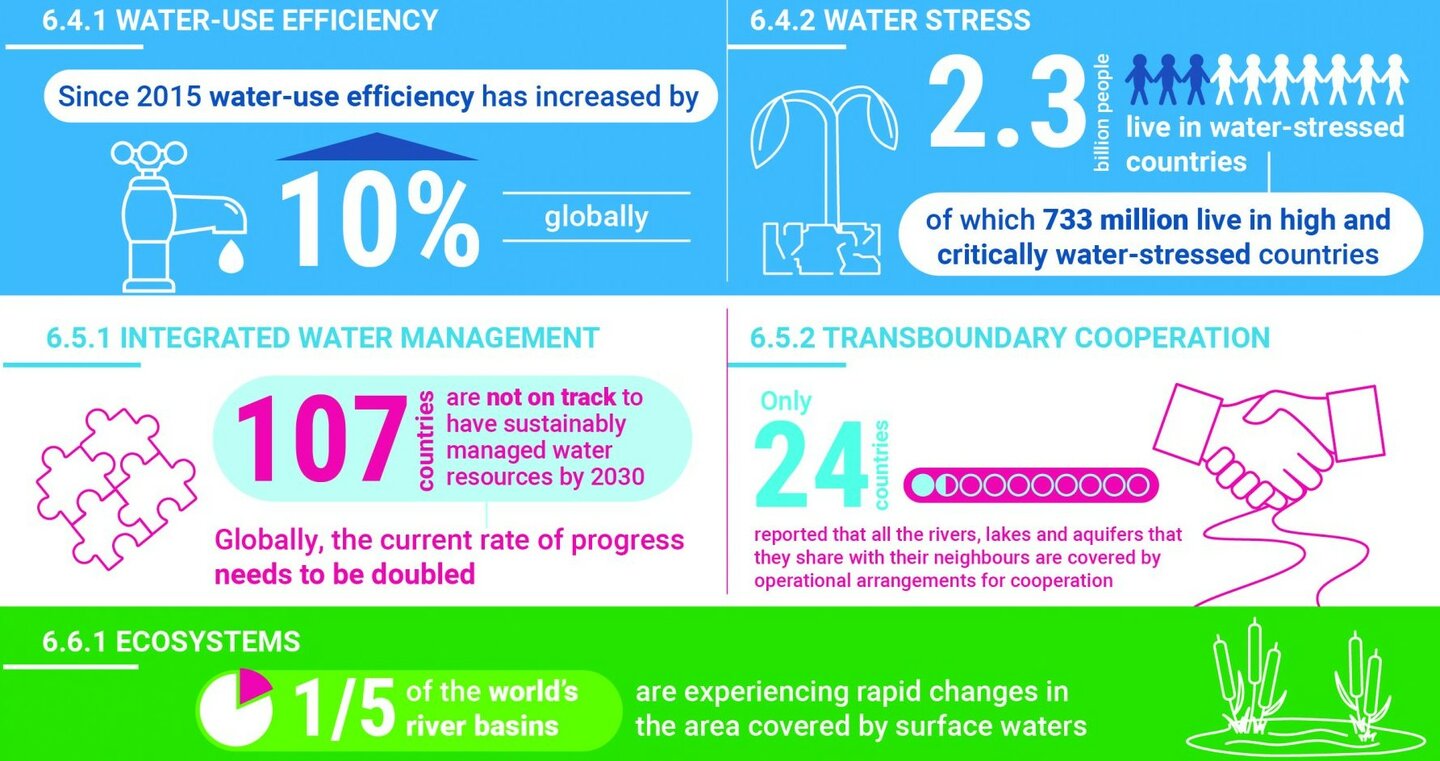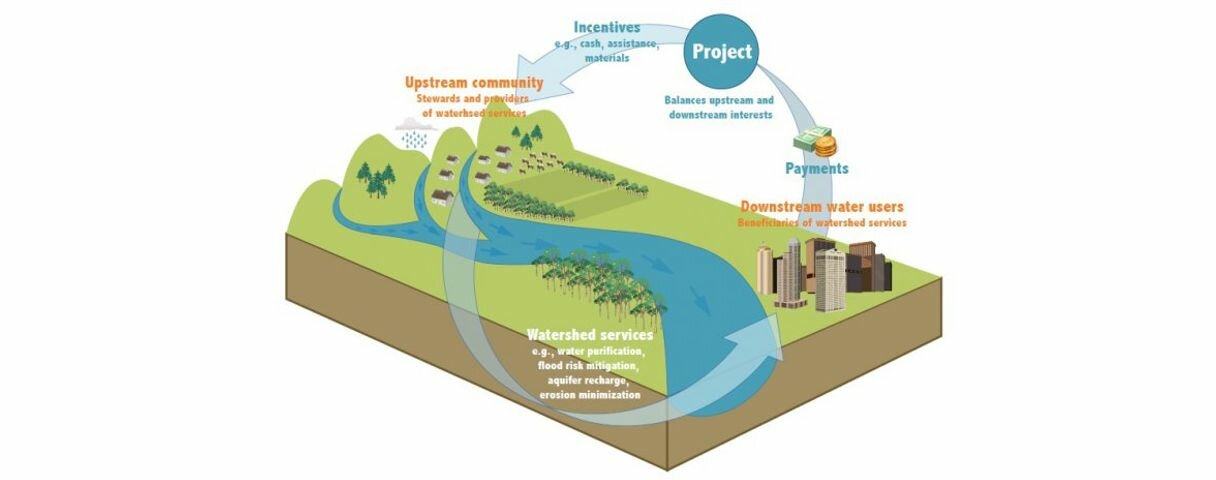The United Nations’ 2021 Progress Update on Sustainable Development Goal (SDG) 6, which focuses on ensuring water and sanitation for all by 2030, showed that many water sources are drying up and becoming more polluted. According to the report, “Land is under greater pressure and ecosystems that provide water are disappearing. On top of this, climate change is making water more scarce and unpredictable, wreaking havoc and displacing millions of people.”

Helvetas programs in 39 countries offer many examples of the correlation between climate change and resource availability. “There is too much or too little water at any given time,” says Julia Randimbisoa, Helvetas' Country Director in Madagascar. The island nation was hit by five tropical storms between January and March this year that caused widespread damage and had a devastating toll on the country’s already fragile food security. Southern Madagascar is also suffering from several years of extreme drought, which has led the World Food Program to declare the country on the brink of the world’s first climate-induced famine.
The communities we work alongside in Ethiopia are also suffering from a drought arising from climate change, as detailed in this recent account of the challenges faced by pastoralists in the Borana region. The Somali region faces an even more dire situation. Three consecutive below-average rainy seasons have led to “the worst drought in forty years” and put millions of Ethiopians at risk of hunger.
Effective management of water resources in these environments is essential, and must involve all stakeholders in the water system, from users at the community level to those responsible for service provision. This is a challenge that requires stronger advocacy efforts. More awareness of key issues and better cooperation across all levels of government and inclusive of all parts of society is needed – and quickly.
In late 2021, Helvetas USA received a generous anonymous donation that enabled us to expand the role of water, sanitation and hygiene (WASH) advocacy work in our existing programs in Ethiopia and Madagascar.
Addressing water shortages in Madagascar
Private operators are a critical part of the water supply network in Madagascar. But the operators are periodically unable to provide reliable water service year-round – creating trust issues with the communities that rely on them. Meanwhile, the lack of a dependable water supply adds additional strain on community members' health and livelihoods.
A breakdown in communication is happening at all levels of the network. As a starting point for better communication, the root problem needs to be addressed at both the national and regional level: Climate change is causing fluctuations in groundwater availability, leaving operators periodically unable to deliver water that people rely on to meet their daily needs. It is anticipated that this problem could worsen in the future, heightening the immediate need to find ways to sustainably adapt and maintain water service for the long term.
Helvetas’ new WASH advocacy initiative will partner with regional authorities and a local university to design a simple and participatory groundwater monitoring system – with the system’s findings made publicly available, allowing clients increased visibility into when there will be water shortages. Efforts will be made to build consensus among municipalities, private operators, regional governors and technical service providers on the importance of monitoring the water table. Another area of advocation is for an emergency fund that will help communities meet their most urgent water needs when underground water is unavailable.
Together, these efforts can help all stakeholders in the system better understand the sustainability of their water supply and plan for future gaps in availability.
Valuing ecosystem services in Ethiopia
National and regional governments in Ethiopia do not typically play a strong role in supporting the management of ecosystem services, particularly regarding watershed conservation. The Amhara Region in northwest Ethiopia is highly affected by climate change, water scarcity and land degradation. Poor ecosystem services exacerbate these problems, resulting in a lack of conservation of essential resources that affects both the livelihoods of communities and the efficient use of water downstream.
Farming communities, which are the key upstream watershed stakeholders that downstream communities depend on, are rarely involved in ecosystem management beyond their micro watershed. There’s a need to establish and promote a system that acknowledges these farming communities’ essential role in the system and to agree on a fair compensation mechanism. One compensation source that benefits all would be payments from communities downstream that incentivize conservation activities by upstream farming communities.

In collaboration with the national Ministry of Water & Energy and the Water & Land Resource Centre of Addis Ababa University, Helvetas has developed a model for collaborative agreements on compensation for ecosystem services. This model is a first of its kind in Ethiopia around water (existing ones focus only on forests).
Contracts will be signed between downstream water users (primarily hydropower and irrigation user associations), watershed unions and community organizations, with a particular focus on women’s involvement in the negotiation process. This model will be tested in one zone in the Amhara Region and, once validated through ample evidence and monitoring data, will be scaled to the regional level.
An understanding of the necessity of the model and its potential is essential for it to be successful. To achieve this, Helvetas and our partners from the ministry and university will facilitate roundtable meetings and workshops with national and regional key stakeholders. The goal of these participatory learning sessions is to improve understanding of upstream land degradation and its negative effects on the livelihoods of rural communities and downstream water-using industries, the associated high costs of land rehabilitation, and the concept of compensation for ecosystem services.



